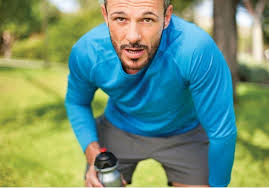
Check out the article on Long Island Pulse written by Justine Lorelle LoMonaco. You can read it below or see it on LIPulse.com
Most Long Islander’s summer plans undoubtedly include time at the ocean, pools and water parks, but it’s even more important to consider the fluids that go inside—especially when it comes to outdoor workouts and long days spent in the sun.
“Hydration is the key to a healthy body all year—nothing else is more essential,” said Deborah Farrell, nutritionist and owner of Deb’s Balanced Nutrition in Garden City. “Eight glasses of water a day is just an estimate—most men need more and women under 5’7” need less. The amount of water you need in a day depends on the level of physical activity, duration of the physical activity and the height, gender and age of the person.” While rising temperatures and increased outdoor activity should spur a person to reach for a water glass more often in the summer, Farrell said her clients often confuse dehydration with hunger. She advises them to drink a glass of water when they first wake up, before meals, and when they think they feel hungry. And take it easy on those summer cocktails—too much alcohol won’t help.
Athletes and those who are especially active in the summer months will have different hydration needs. Trainer Mike Lynch, owner of lynchfit.com, is a trainer with certification in performance nutrition. Part of his training recommendations include proper hydration. “Always have fluids on hand—dehydration can happen at any time,” Lynch said. “Generally, I recommend approximately half of one’s body weight in ounces of fluid per day, year round.”
The biggest mistake both Farrell and Lynch see their clients make when it comes to hydration is reaching for sports drinks during exercise. “Sports drinks are very high in sugar and most fitness enthusiasts do not require that amount of glucose at once,” Lynch said. “Repeated ingestion of high glucose drinks can lead to metabolic derangement.” In other words, the very weight gain they’re probably exercising to avoid. Farrell agreed: “I do not recommend sports drinks—water is sufficient for most exercise if you drink early and often. Having a piece of fresh fruit, some protein and more water after a hard workout will replenish and regulate body temperature.” For children, she recommends a sports bottle filled with water and a splash of fruit juice to refuel during summer camp or long days outdoors.
The only exception to the rule is endurance athletes. “Those who exercise in excess of one and half hours could benefit from sipping on a sports drink for the remainder of the workout beyond the hour and a half mark,” Lynch said. For a less caloric option, Lynch also recommends coconut water or regular water with a pinch or two of Celtic sea salt for additional electrolytes and essential minerals. “At the end of the day, one has to be aware of the signs and symptoms of inadequate hydration or nutritional deficiencies—if something doesn’t feel right, it probably is not,” Lynch said. “Don’t drink a sports drink just because your favorite athlete drinks one.”
While each person’s fluid needs will vary, both experts recommend listening to your body and responding to what it needs. Feeling sluggish and tired are some of the first signs of dehydration. Keeping a bottle or glass of water on hand at all times is one of the simplest ways to remain hydrated.
